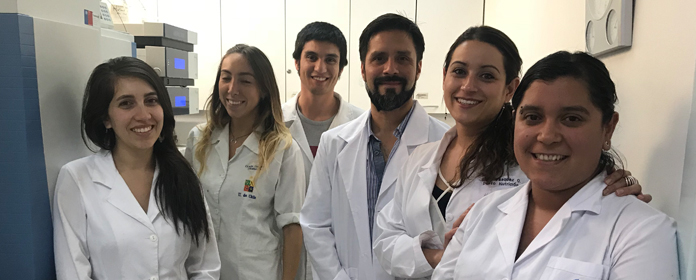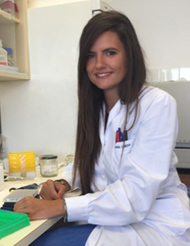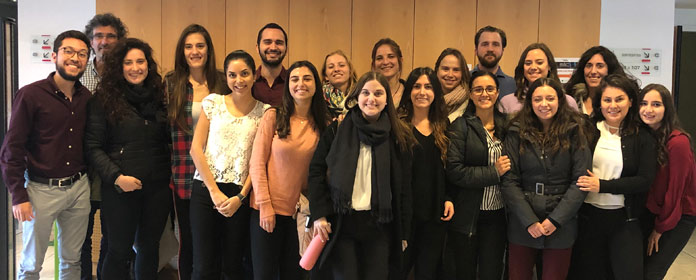"With the Master's Degree I have been able to have a solid curriculum to lead projects in research basic in Nutrition".
Diego García Díaz (E-MENU 06 and PhD 11) traveled from Chile to Pamplona looking for a technical training in Nutrition. He is now a professor and researcher at the University of Chile.

PHOTO: Courtesy
Diego was never deterred by the almost 11,000 kilometers of distance between his country, Chile, and Spain, where he came in 2005 to study the EuropeanMaster's Degree in Food, Nutrition and Metabolism (E-MENU). His goal, as a biotechnologist, was to broaden his knowledge of Food and Nutrition in order to try to reverse the obesity problem in his country, where 80% of the population is considered sedentary.
- What is your current work at the University of Chile and how do you apply the knowledge acquired at Master's Degree?
Currently I am Adjunct Professor of the department of Nutrition of the School of Medicine of the University of Chile, where I teach Basic Nutrition in the first years of degree program of nutritionists, food engineers, doctors, etc. In addition, I do research in the search for new applications of natural and native sources (from Chile) on the development of obesity and diabetes in in vivo models. Precisely the Master's Degree E-MENU allowed me to strengthen the technical knowledge applied to research in Nutrition with which I can now lead different projects in my laboratory.
- How has postgraduate program helped you in the development of your professional degree program ?
The Master's Degree E-MENU has been fundamental to establish the nutritional instructions of my current work. My previous training was Biotechnology (in which I graduated from the University of Chile). To this training I added the Master's Degree and the subsequent doctorate in Physiology and Nutrition also at the University of Navarra. With this training I have been able to design a solid curriculum to dedicate myself to basic research in Nutrition.
- Why would you advise a graduate interested in the field of Nutrition to take the Master's Degree E-MENU?
This postgraduate program sets up the instructions of a broad knowledge in Nutrition that can interest professionals coming from this and other fields. At the same time, it offers the tools to apply everything learned in research projects that already occupy the first positions of relevance in the health field.
- What is the perception about the importance of Nutrition in a country like Chile?
In Chile we have a major problem in relation to Nutrition. As in many countries in the world, food trends lean towards fast food -dense in energy and saturated fats-. In addition, we have high rates of sedentary lifestyles (over 80%). According to the latest health survey , obesity has increased in Chile in a worrying way in the last ten years, which translates into higher rates of diabetes and greater likelihood of suffering cardiovascular problems.
On the other hand, the strategies that have been implemented at the clinical/political level have not reversed this trend. Our goal, as experts in Nutrition, should be to change this trend and thus ensure a healthier future for the population.


